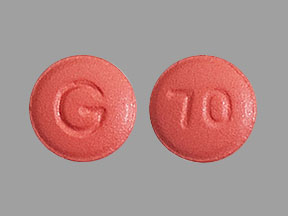
Atovaquone-proguanil Coupons & Savings Card – Discount Prices from $26.42
Generic for: Malarone
My prescription
Edit
62.5-25MG, Atovaquone-proguanil (30 Tablets)
Select pharmacy

CVS
$26.42
COUPON PRICE
Walgreens
$30.13
COUPON PRICE
Walmart
$39.99
COUPON PRICE
Albertsons
$46.93
COUPON PRICEAtovaquone-proguanil savings card
Show this card to your pharmacist
CVS
$26.42
BIN
ID
PCN
GRP
019876
LH1797D8BB
CHIPPO
LHX
Powered by
More prescriptions for malaria
More prescriptions for malaria
Price history for Malarone (brand) & Atovaquone-proguanil (generic)
30 Tablets, 62.5-25MG
Average retail price for Malarone
Average retail price for Atovaquone-proguanil
Average SaveHealth price for Atovaquone-proguanil
Our price history data is based on aggregated prescription data collected from participating pharmacies in America. Our prescription data updates daily to reflect the latest price changes. If you notice a missing data point, it means there wasn't sufficient data available to generate a monetary value for that date.
We analyzed Atovaquone-proguanil prices for (62.5-25MG, 30 Tablets) over the last 12 months. The average retail price was $80.63, while the average price using the SaveHealth discount card was $37.56. That's a savings of approximately 53.42% when using our Atovaquone-proguanil coupon.
Compared to the generic version, Malarone had an average price of $175.41 over the same time period. With the SaveHealth savings card, Atovaquone-proguanil is 78.59% cheaper on average than Malarone.
*Retail prices are based on pharmacy claims data, and may not be accurate when we don't have enough claims.
Atovaquone-proguanil dosage forms
Dosage Quantity Price from Per unit 62.5-25MG 30 Tablets $26.42 $0.88 62.5-25MG 100 Tablets $53.38 $0.53 250-100MG 1 Tablet $4.69 $4.69 250-100MG 4 Tablets $11.27 $2.82 250-100MG 5 Tablets $13.46 $2.69 250-100MG 7 Tablets $17.85 $2.55 250-100MG 10 Tablets $24.43 $2.44 250-100MG 11 Tablets $26.62 $2.42 250-100MG 12 Tablets $28.03 $2.34 250-100MG 13 Tablets $28.85 $2.22
| Dosage | Quantity | Price from | Per unit |
|---|---|---|---|
| 62.5-25MG | 30 Tablets | $26.42 | $0.88 |
| 62.5-25MG | 100 Tablets | $53.38 | $0.53 |
| 250-100MG | 1 Tablet | $4.69 | $4.69 |
| 250-100MG | 4 Tablets | $11.27 | $2.82 |
| 250-100MG | 5 Tablets | $13.46 | $2.69 |
| 250-100MG | 7 Tablets | $17.85 | $2.55 |
| 250-100MG | 10 Tablets | $24.43 | $2.44 |
| 250-100MG | 11 Tablets | $26.62 | $2.42 |
| 250-100MG | 12 Tablets | $28.03 | $2.34 |
| 250-100MG | 13 Tablets | $28.85 | $2.22 |
| 250-100MG | 14 Tablets | $29.66 | $2.12 |
| 250-100MG | 16 Tablets | $31.28 | $1.96 |
| 250-100MG | 20 Tablets | $34.52 | $1.73 |
| 250-100MG | 24 Tablets | $37.77 | $1.57 |
| 250-100MG | 30 Tablets | $42.64 | $1.42 |
| 250-100MG | 100 Tablets | $107.42 | $1.07 |
| 250-100MG | 190 Tablets | $180.43 | $0.95 |
| 250-100MG | 280 Tablets | $253.44 | $0.91 |
| 250-100MG | 365 Tablets | $322.39 | $0.88 |
| 250-100MG | 375 Tablets | $330.50 | $0.88 |
Atovaquone-proguanil Warnings
This medication comes with important safety information regarding its use. It is essential to read and understand these warnings and contraindications to ensure safe and effective treatment. Please discuss any concerns with your healthcare provider.
Worsening Infection: This medication, Malarone (atovaquone/proguanil), may not effectively treat all types of malaria parasites. Ineffectiveness can lead to worsening or recurrence of the infection. If your symptoms, such as fever, chills, or headache, return after completing the treatment, contact your healthcare provider.
Liver Damage: Use of Malarone has the potential to cause or exacerbate liver issues, possibly resulting in liver failure. Your healthcare provider may conduct blood tests to monitor liver function before and after treatment, especially if you have pre-existing liver conditions. Seek immediate medical help if you experience symptoms like abdominal swelling, pain, jaundice, altered stool color, nausea, vomiting, or dark urine. You may need to discontinue use to prevent additional liver damage. This is particularly relevant for individuals with a history of liver problems.
Contraindications: This medication should not be used in certain situations due to the risk of serious health issues:
- Severe allergy to atovaquone or proguanil.
- Malaria prevention in individuals with severe kidney issues. Always consult your healthcare provider if any of these conditions apply to you before starting this medication.
Atovaquone-proguanil Side Effects
Common side effects:
- Stomach pain
- Nausea
- Vomiting
- Diarrhea
- Reduced appetite
- Headache
- Weakness
- Dizziness
Less common but important to monitor:
- Cough
- Mouth sores
- Vivid dreams
Serious side effects:
- Swelling of the stomach
- Yellowing of the skin or eyes
- Confusion
- Dark or brown urine
Atovaquone-proguanil Interactions
When taking atovaquone-proguanil, it's important to be aware of potential interactions with other medications:
Antibiotics: Medications like Rifampin, Rifabutin, and tetracycline can lower atovaquone levels in the blood. It's advisable to avoid using these antibiotics while on atovaquone-proguanil.
Anticoagulants: Proguanil may enhance the effects of blood thinners such as Warfarin. If you're on these anticoagulants, your doctor might need to adjust your dose or monitor your blood clotting times more closely during atovaquone-proguanil therapy.
Antiemetics: Metoclopramide, used to control nausea and vomiting, can decrease the absorption of atovaquone. It's recommended to use alternative antiemetics if needed.
Antihistamines: Cimetidine, an H₂ receptor antagonist, can interfere with how proguanil is processed in the body. It's best to avoid cimetidine while taking atovaquone-proguanil.
HIV Medications: Certain antiretroviral drugs, including Atazanavir, Darunavir, indinavir, lopinavir, Ritonavir, Efavirenz, etravirine, and Nevirapine, may reduce the effectiveness of atovaquone-proguanil. If you're on these medications, discuss alternative malaria prevention options with your healthcare provider.
Selective Serotonin Reuptake Inhibitors (SSRIs): Fluvoxamine can affect the metabolism of proguanil. Consider other antimalarial options if you're taking this SSRI.
Always inform your healthcare provider about all medications you're currently taking to ensure safe and effective use of atovaquone-proguanil.
